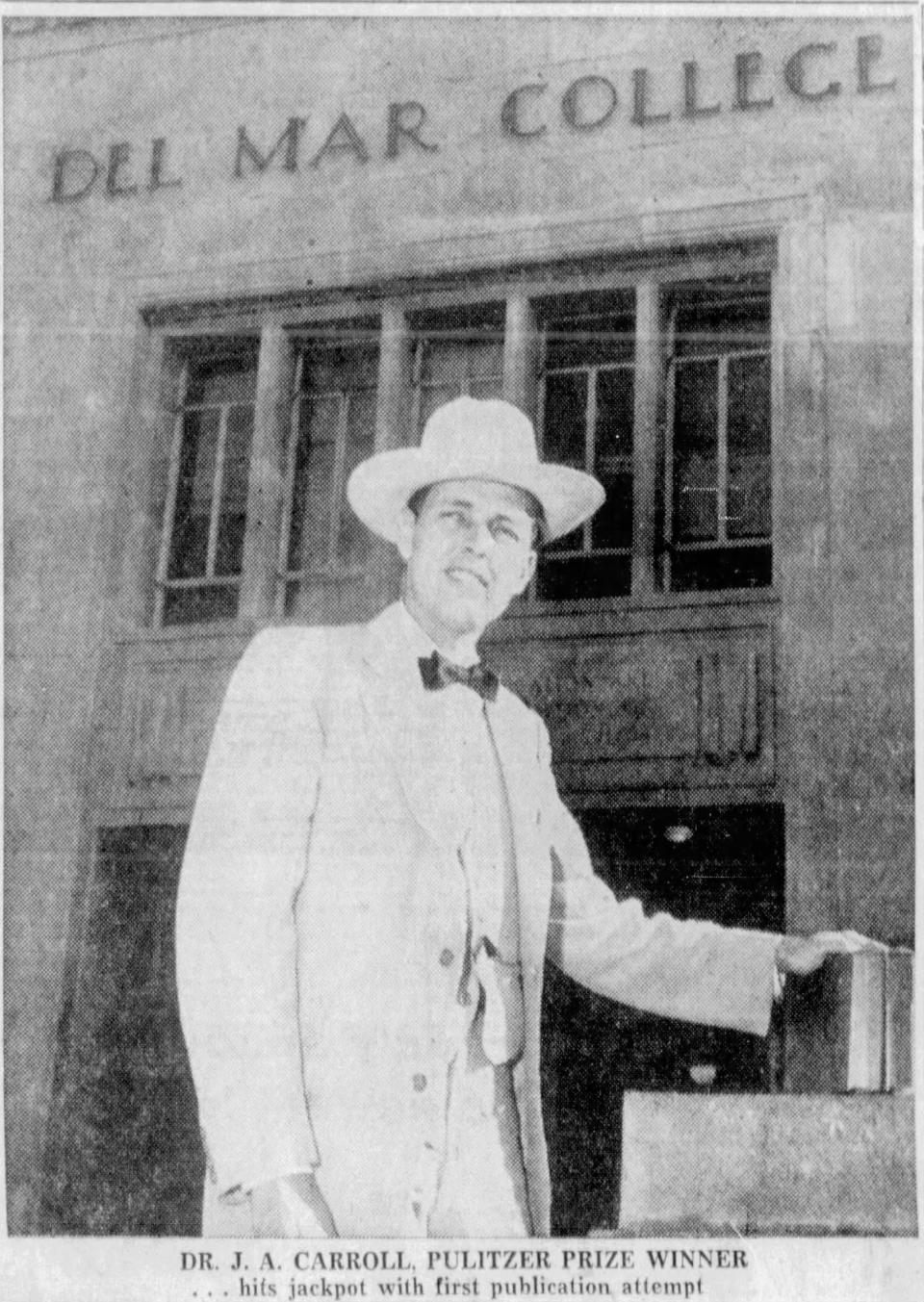Aim high: Del Mar professor won Pulitzer Prize in 1958
The Pulitzer Prize! Ernest Hemingway, Willa Cather, Robert Frost, Carl Sandberg, Norman Mailer, Eugene O’Neal, Robert Caro, and scores of other notable men and women. Whenever I write my own histories, I add a notation: “This is going to win me a Pulitzer!” as a reminder to maintain the highest standards of research and writing which my dissertation advisor at Duke insisted upon.
When I arrived at Del Mar College in 1967, I had not the foggiest notion that a former history professor at the college had received a Pulitzer Prize nine years earlier. Dr. Edith Parker, who was department chair when I came, never mentioned him since she had arrived after he had left, nor did the professor’s name ever come up during the years that followed. There are no plaques, no photos, no buildings named after him which is amazing. I eventually learned about him while browsing a 1958 student publication.
He was John Alexander Carroll (1925-2000), a PhD in history from Georgetown University, originally from Wyoming, who taught at William and Mary College in Virginia before coming to Del Mar where he became History Department Chair. “It seemed like a good opportunity to build up the history department. The college is growing and we hope there is a strong possibility that it will have a four-year program soon.” No doubt that would have been accomplished had Carroll remained at Del Mar.

More: Corpus Christi’s Mayor Maltby went missing for a few weeks in 1857
May 5, 1958 was a red-letter day for Carroll when he learned he was Pulitzer Prize co-winner for volume 7 of Douglas Southall Freeman’s biography of George Washington: "George Washington: First in Peace." Freeman had died in 1953 leaving the work unfinished and Carroll, who had been a researcher for Freeman, completed the volume with Freeman’s other researcher, Mary Wells Ashworth. The 33-year-old recipient noted: “Not very often are Pulitzers given to young writers or those trying out wings for the first time.” Carroll would henceforth be recognized for this major achievement after he left Del Mar for the University of Arizona where he contributed significantly to Western history including a new historical quarterly, "Arizona and the West." And he could now teach a specialized course in the American Revolution rather than the limitations of survey courses at Del Mar. His credo that an “historian should attempt to assimilate material from all approaches to history and project himself into time and place” was integrated into his teaching methodology along with a generous amount of showmanship and humor.
Carroll’s classes were “always jammed to overflowing” because, a student noted, “He makes history so exciting you can’t help but enjoy it.” A reporter for the Tucson Daily Citizen found Carroll in a classroom “immaculately dressed in white, broad-brimmed sombrero, tailored suit and hand-tooled leather boots.” After pulling a gold stem-winding watch from his vest pocket, Carroll began by telling the class that “We are going to do this Navy style. The graduates are going to be my petty officers. The history majors will be seamen first class and those of the lesser disciplines—common seamen.” They would all be learning about every aspect of a period or region “down to the point where one would understand what people ate and wore, what games they played and how they expressed themselves.”
Dr. Carroll died in 2000. His World War II naval service (1943-46) entitled him to internment at Fort Rosecrans National Cemetery in San Diego, California, where a plaque has his name, dates, and PULITZER PRIZE 1958.”
What can we learn from Dr. Carroll? How about aim high; aim for a Pulitzer.
Norman C. Delaney, PhD, is a member of the Nueces County Historical Commission and retired Del Mar College history professor.
This article originally appeared on Corpus Christi Caller Times: Aim high: Del Mar professor won Pulitzer Prize in 1958

